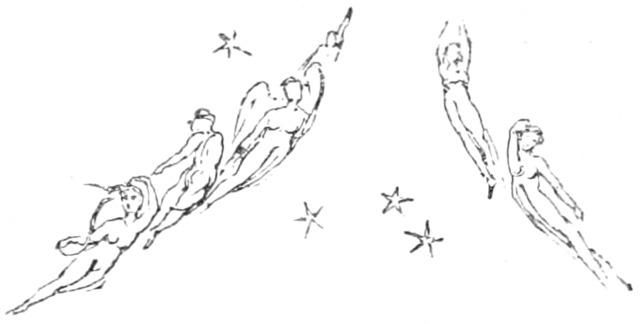Colin Criss
![]()

JUST BEFORE NIGHTFALL
When a rhetorician speaks
with a swan, the swan murmurs
nervously of reed and tendril, though not
in such terms. The swan is asked of the weather,
declines tea. The swan obliges
the gesture of sunlight; not so, the beckoning
hand. On one side of the pond, there appears a dark film,
like a lid. The swan has pointed
towards it, still in the breeze and sun.
There are many lives here… I feel inclination
towards a question, but cannot bring myself to disturb
the mood. I have come here
on a walk. I, eventually, think of another,
one whom I think of often. It takes a lot to break a pattern.
To experience a break is not the same as inference
of a breaking.
with a swan, the swan murmurs
nervously of reed and tendril, though not
in such terms. The swan is asked of the weather,
declines tea. The swan obliges
the gesture of sunlight; not so, the beckoning
hand. On one side of the pond, there appears a dark film,
like a lid. The swan has pointed
towards it, still in the breeze and sun.
There are many lives here… I feel inclination
towards a question, but cannot bring myself to disturb
the mood. I have come here
on a walk. I, eventually, think of another,
one whom I think of often. It takes a lot to break a pattern.
To experience a break is not the same as inference
of a breaking.
THE ESSENTIAL BREUGHEL
This is the life: essentially
Breughelian—waxy skin shining
on waxy lea. Waxy forest. Waxy
snow. Waxy flame, waxing into
something warm. I’m dreadfully
alone. I sit at a desk. I lie
on the floor. I lie. I lie. Nothing is
as I say. I think of crowds,
I think of crowds skating,
I think they know nothing
of each other. Little fools,
smiling with waxy lips, smiling
not at me, or anyone else, or even
at God. I skate on ice as thin
as clouds, as thin as lines.
I skate in the background—for I
am out-of-focus. In front,
a small family, with a waxy sled,
slides away, two children crisp
and smudged with happiness.
A color doesn’t swim into
another, here, doesn’t swim
at all with Breughel, it is not so.
Waxy, waxy lines. We must live
with a perfect precision, the snow
coughs, perfectly precise, our life.
With such dictum, where
should I have gone, but into
the background? I ask questions
I need answered—I wait, meanwhile.
We wait for something to accumulate
on our noses. We wait and, with
little kolf sticks, roll happiness
across the ice. Why
do the children smile? No reason
precedes the painter. The kids,
they smile for themselves;
it is all they have left. It is all
they have ever had.
Breughelian—waxy skin shining
on waxy lea. Waxy forest. Waxy
snow. Waxy flame, waxing into
something warm. I’m dreadfully
alone. I sit at a desk. I lie
on the floor. I lie. I lie. Nothing is
as I say. I think of crowds,
I think of crowds skating,
I think they know nothing
of each other. Little fools,
smiling with waxy lips, smiling
not at me, or anyone else, or even
at God. I skate on ice as thin
as clouds, as thin as lines.
I skate in the background—for I
am out-of-focus. In front,
a small family, with a waxy sled,
slides away, two children crisp
and smudged with happiness.
A color doesn’t swim into
another, here, doesn’t swim
at all with Breughel, it is not so.
Waxy, waxy lines. We must live
with a perfect precision, the snow
coughs, perfectly precise, our life.
With such dictum, where
should I have gone, but into
the background? I ask questions
I need answered—I wait, meanwhile.
We wait for something to accumulate
on our noses. We wait and, with
little kolf sticks, roll happiness
across the ice. Why
do the children smile? No reason
precedes the painter. The kids,
they smile for themselves;
it is all they have left. It is all
they have ever had.
LIKE WHAT HOME BECOMES
A village between glacial knuckles.
Everything on the tongue is becoming.
I’m learning how to tie off my mind.
I’m learning how to chirp. Like a faulty
Wordsworth, everything I look for
will tell me something when I find it.
Bells so far away they might be wind.
Snow so close it might be thunder.
Sense warps, when passed through knowledge,
into sense. I wander in likeness—I am
like that. Silence will be the final condition
taken for granted.
Everything on the tongue is becoming.
I’m learning how to tie off my mind.
I’m learning how to chirp. Like a faulty
Wordsworth, everything I look for
will tell me something when I find it.
Bells so far away they might be wind.
Snow so close it might be thunder.
Sense warps, when passed through knowledge,
into sense. I wander in likeness—I am
like that. Silence will be the final condition
taken for granted.
Biographical Statement
Colin Criss has an MFA in poetry from Washington University in St. Louis. He is from Old Forge, NY, in the Adirondacks. His poems have appeared, or will soon, in Ploughshares, Grist, New Limestone Review, Midwest Review, the Harvard Advocate, and in other places. He lives in Moscow, ID, and teaches creative writing at Washington State University.